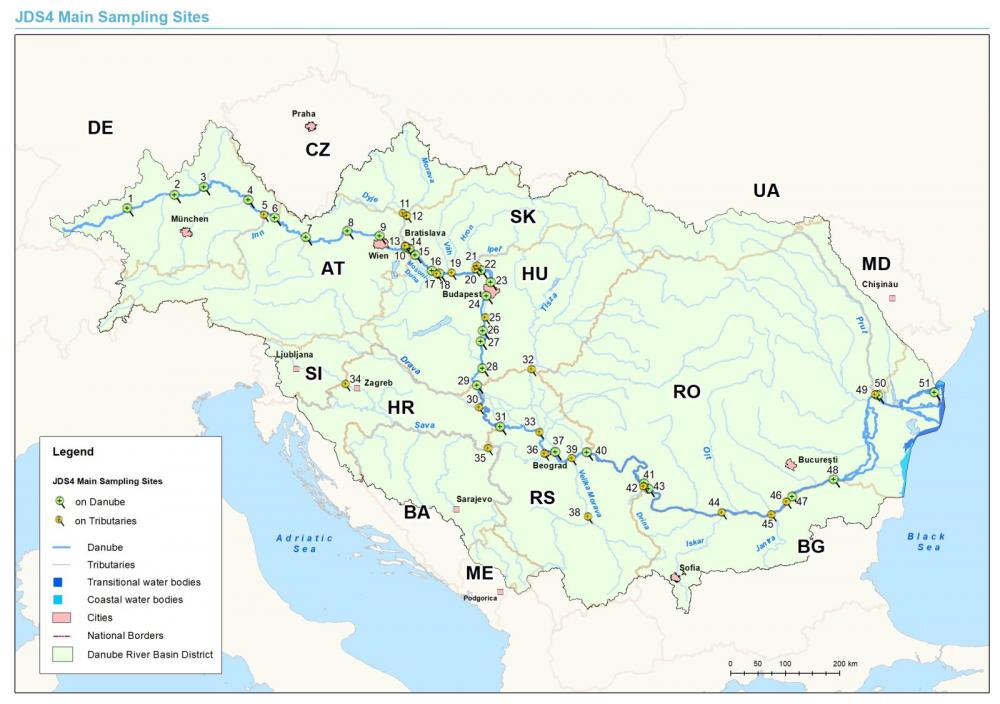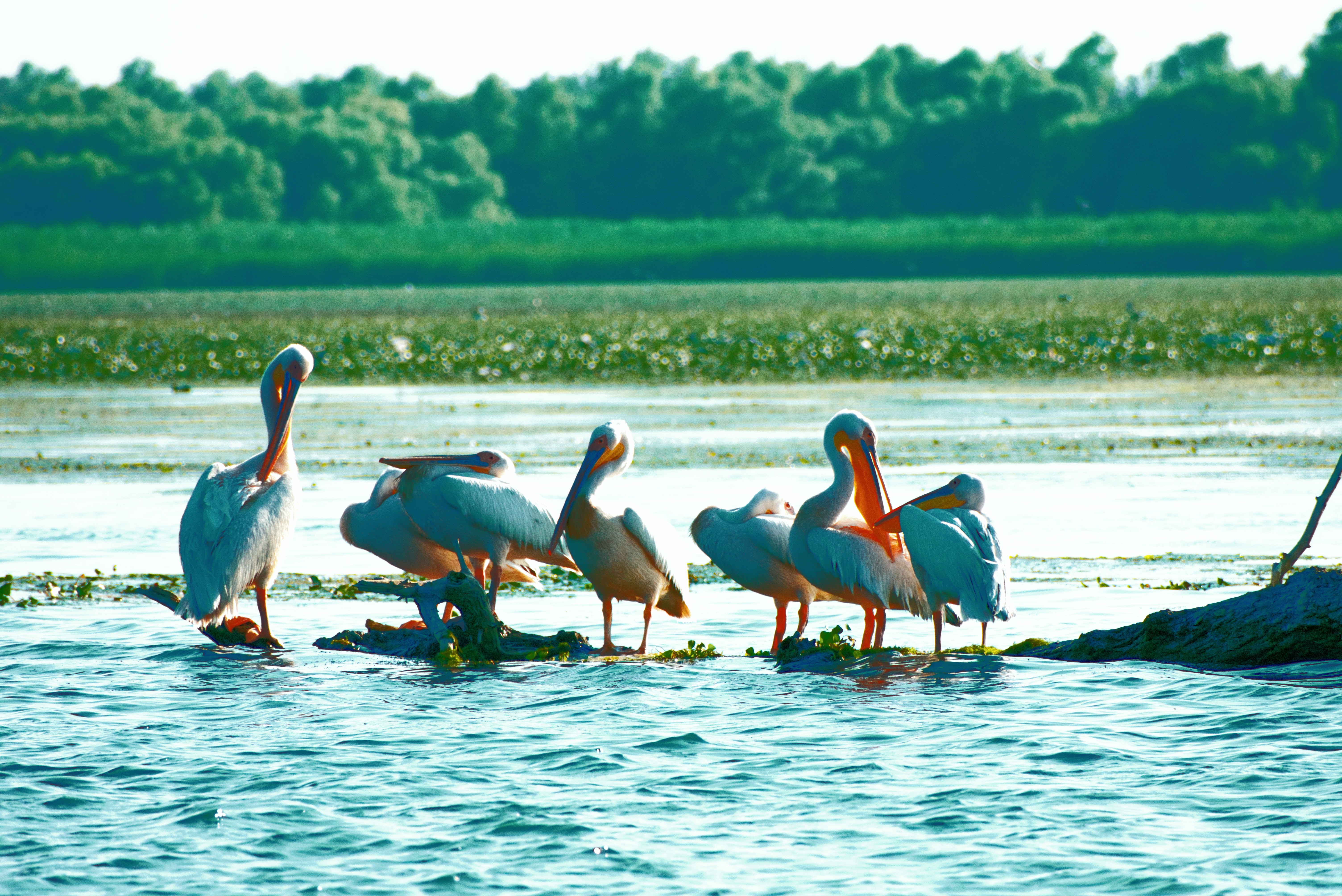Thessaloniki gets ready for its metro launch in November
The underground rapid transit lines have been under construction for almost two decades due to various project delays
 TheMayor.EU logo
TheMayor.EU logo According to the survey, wastewater pollution is down, however, microplastics are abundant
The condition of the Danube has improved significantly according to “The Joint Danube Survey 4” (JDS4) published today. The world’s most comprehensive study of a river passing through multiple countries reported that the Danube is in an overall better condition compared to the last study done in 2013.
Wastewater pollution is down, chemical pollution is down, radioactive pollution is non-existent and biodiversity is up, however, microplastics are present across the whole river basin.
The International Commission for the Protection of the Danube River (ICPDR) is the organisation behind the study and this is their fourth in a row. They were founded in 1998 and currently are the largest body for river basin management expertise in Europe as they cover all 14 countries that are located in the Danube Basin.
These countries are Germany, Austria, the Czech Republic, Slovakia, Hungary, Slovenia, Croatia, Bosnia and Herzegovina, Serbia, Romania, Bulgaria, Moldova, Montenegro and Ukraine.
 A map to the 51 points in the Danube River Basin,
A map to the 51 points in the Danube River Basin,
Source: The International Commission for the Protection of the Danube River website
The fourth study of the river used 51 points spread along the whole Danube in 13 countries. It started in mid-2019 with a small group of scientists collecting samples and using local support from the countries to increase transparency and promote cooperation.
The JDS4 has some promising conclusions with a significantly smaller number of dangerous pollutants in the river. The study found that 78% of the samples have small or moderate faecal pollution and that is very good considering state-of-the-art wastewater management systems operating along the Danube. Only 19% of the samples showed critical levels of pollution.
Despite ongoing pressures on fish species in the Danube and its tributaries, JDS4’s results showed that most of the native fish species are present at nearly all sites. This is even true for the strongly altered riverbeds in the Upper Danube section. The scientists found a total of 72 fish species, underlining the Danube’s importance as a source of fish biodiversity in Europe.
 The Danube is home to many animal species:
The Danube is home to many animal species:
birds, insects and fish including the Dalmatian Pelican
Above all, the report found a growing number of alien invasive animal and bacterial species in the river, as well as the presence of antibiotic-resistant bacteria, due to years of medical pollution.
For the first time, the report also examined the occurrence of microplastics in the Danube sediment and in mussels. Microplastic particles are only found in low concentrations, but they can be found everywhere.
The team found that polyethene terephthalate (commonly known as PET plastics) is the dominant plastic pollutant. It is used in plastic bottles, all kinds of food packaging and coffee-to-go cups.
Austrian officials were first to react, with the Ministry of the Environment vowing to incorporate the JDS4 data into their existing framework from the National Water Management Plan.

The underground rapid transit lines have been under construction for almost two decades due to various project delays

Now you can get your wine in Talence by paying directly in Bitcoin

That’s because the state has to spend money on updating the railway infrastructure rather than subsidizing the cost of the popular pass

Rethinking renewable energy sources for the urban landscape

The examples, compiled by Beyond Fossil Fuels, can inform and inspire communities and entrepreneurs that still feel trepidation at the prospect of energy transition

Now you can get your wine in Talence by paying directly in Bitcoin

The 10th European Conference on Sustainable Cities and Towns (ESCT) sets the stage for stronger cooperation between the EU, national and local level to fast track Europe's transition to climate neutrality.

At least, that’s the promise made by the mayor of Paris, Anne Hidalgo

The underground rapid transit lines have been under construction for almost two decades due to various project delays

At least, that’s the promise made by the mayor of Paris, Anne Hidalgo

Hostal de Pinós is located in the geographical centre of the autonomous region

Despite its church-y name, the district has long been known as the hangout spot for the artsy crowds

Urban dwellers across the EU are having a say in making their surroundings friendlier to people and the environment.

Forests in the EU can help green the European construction industry and bolster a continent-wide push for architectural improvements.

Apply by 10 November and do your part for the transformation of European public spaces

An interview with the Mayor of a Polish city that seeks to reinvent itself

An interview with the newly elected ICLEI President and Mayor of Malmö

A conversation with the Mayor of Lisbon about the spirit and dimensions of innovation present in the Portuguese capital














